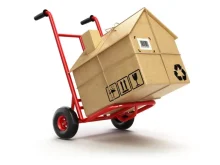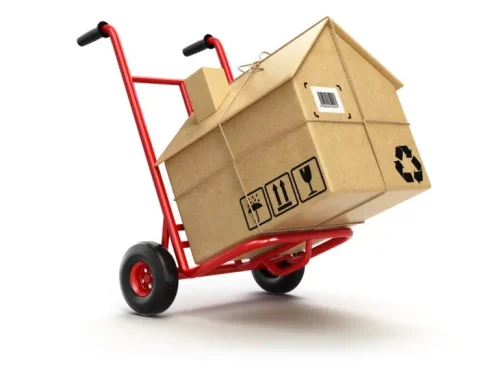
You are allowed to move home during an IVA. However if possible it is often better to do so before starting the Arrangement or waiting until it is over.
Included in this article:
- Can you move home during an IVA
- Moving to a new rented property
- Selling a property you own
- Renting your house out during an IVA
Want help to start an IVA?
Give us a call: 0800 011 4712 or complete the form below to speak to one of our experts
Can you Move Home during an IVA?
Legally speaking there is nothing to stop you moving during an IVA. However the process is not straight forward. There are a number of issues you will need to consider whether you are a home owner or renting.
Firstly your poor credit rating will make any move difficult. It will affect your ability to buy a new property or find a one to rent.
In addition you must consider your living expenses budget. If any of your expenses increase as a result of moving it will affect your ability to maintain your IVA payments.
If at all possible it is almost always easier to move home either before you start your IVA or wait until after the Arrangement is completed.
Moving to a new Rented Property during an IVA
Moving to a new rented property during an IVA is possible. However you will face a significant challenge because your credit rating is poor. This will mean that you will fail most letting agency credit checks.
There are potentially some ways round this.
First, if you are planning to live with someone else, if possible they should take the tenancy in their name alone. You can be a named occupier only. This will mean that only they have to pass the credit check.
Second, you could offer to pay 6 month rent in advance. However you may struggle to access sufficient funds if you are in an IVA.
Third, you could offer a third party who will act as a guarantor for the rent payments. Some letting agents will be happy with this, other not.
In addition to everything else, you must also take into consideration whether your new rent payment will fit into your living expenses budget. If it will mean your overall expenditure is going to increase, you will then struggle to maintain your IVA payments.
Struggling to get your head round all of this? We can help. Give us a call (0800 011 4712) or complete the form at the bottom of this page. The advice is free and confidential.
Selling your Property while in an IVA
If you are a home owner it is unlikely that you will be able to sell your property and buy another one during your IVA. Firstly you will not be able to use any equity released from the sale as a deposit for your next home.
Any equity raised will be treated as a windfall. In other words it will have to be paid into the Arrangement to increase the amount paid back to your creditors. It will not be available to help you by another property.
The next problem will be getting a mortgage. It is unlikely that you will be able to do this during your IVA for any other reason than to settle your Arrangement early.
If you are a home owner and need to move during your IVA your best option might be move to rent out your property to someone else and move into rented accommodation yourself.
Renting your House Out during an IVA
You may have no choice but to move home during your IVA. In these circumstances if you are a home owner the best option may be to rent out your property and then start renting yourself.
This will still present significant challenges. You will need to ensure the rent you charge for your property covers the mortgage payments. In addition the costs you incur due to renting must not increase your living expenses too much thus making your IVA payments unafordable.
Before making any decision to move you must discuss the situation with your IVA Company. If you have no choice and your expenses are likely to rise they may be able to help by reducing the payments you make into your Arrangement.
Before renting out your property you must inform your mortgage lender. They will normally require you to apply for a Consent to Lease.
Need more advice about moving home during an IVA? Give us a call (0800 011 4712) or complete the form at the bottom of this page. Its free and confidential.


